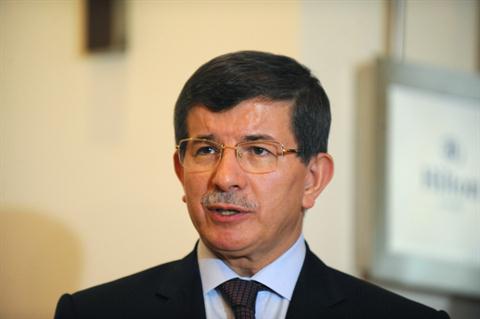CAIRO: Arab foreign ministers agreed on Wednesday to back one last round of indirect Palestinian-Israeli talks despite skepticism over Israel’s readiness to revive peace efforts, Arab League chief Amr Moussa said.
The move, which was swiftly welcomed by Israel, came after months of US-led shuttle diplomacy, with Arab foreign ministers insisting the talks should conclude within four months.
“Despite a lack of conviction over Israel’s seriousness, (Arab foreign ministers) will give indirect talks a chance, for the final time, in order to facilitate US efforts, within four months, Moussa said after two days of talks.
“There was a consensus that Israel is not interested in peace, the proof being what is taking place on occupied land… acts which are meant to provoke the Arab and American sides, Moussa added.
In their discussions in the Egyptian capital, the ministers agreed there “were legitimate questions about the effectiveness of the US role, he said.
Negotiations have been on ice since Israel launched a devastating attack on the Gaza Strip in December 2008.
The Palestinians have said they will only return to the negotiating table if Israel first halts all settlement construction in the occupied West Bank.
But Israel has agreed only to a 10-month freeze that excludes public buildings and annexed Arab east Jerusalem, failing to satisfy the Palestinians.
US Middle East envoy George Mitchell proposed US-brokered indirect talks as a way of getting around the deadlock.
Israel welcomed the Arab ministers’ endorsement of indirect talks.
“We welcome this decision. Prime Minister Benjamin Netanyahu has been continually calling for peace talks, and we hope that now the talks can move forward, government spokesman Mark Regev told AFP.
Palestinian President Mahmoud Abbas had briefed the Arab ministers in the Follow-Up Committee for Peace about the US proposals on Tuesday.
The ministers said the talks should be based on the principles of a 2002 Arab peace initiative, which calls for full normalization with Israel in exchange for a complete withdrawal by Israel from Arab land, the creation of a Palestinian state and an equitable solution for Palestinian refugees.
Negotiations must adhere to Arab principles defined by the Arab peace initiative, Oman s top diplomat Yusef bin Alawi bin Abdullah told reporters on Tuesday.
What has prevented president Abbas from pursuing negotiations is the continued policy of settlements, Abdullah said, adding that any negotiations must be during Israeli Prime Minister Benjamin Netanyahu s term of office.
Going into Tuesday s consultations with the Arab ministers, Abbas had said he would base his decision on whether to join indirect talks with Israel on the outcome of the meeting.
We, the Palestinian side, will abide by what is decided at this meeting, he said.
Palestinian spokesman Nabil Abu Rudeina had called on delegates to accept the principle of indirect talks.
Israel does not want to return to the negotiating table. But it wishes to blame the Palestinian side, saying that the Palestinians do not want to enter into negotiations, Abu Rudeina said.
So we must put a stop to this pretext and reveal Israel s true position before the international community and the American administration.
He said the indirect negotiations would be through the US Middle East envoy, insisting that direct negotiations were not on the agenda.
There is currently no idea to hold direct negotiations. The Palestinian and Arab positions on this matter are clear – there must be a clear reference for negotiations and the complete halt of settlements, Abu Rudeina said.
There has been no let-up in Israeli settlement construction outside the limited 10-month moratorium Netanyahu announced in November.
On Friday, Israeli daily Haaretz reported that the government had given the green light for 600 new homes in a Jewish settlement in east Jerusalem, drawing US criticism.
The Arab Follow-Up Committee draws representatives from Algeria, Bahrain, Egypt, Jordan, Kuwait, Lebanon, Morocco, Oman, Qatar, Saudi Arabia, Sudan, Syria, Tunisia, the United Arab Emirates and Yemen, as well as the Palestinian Authority.
